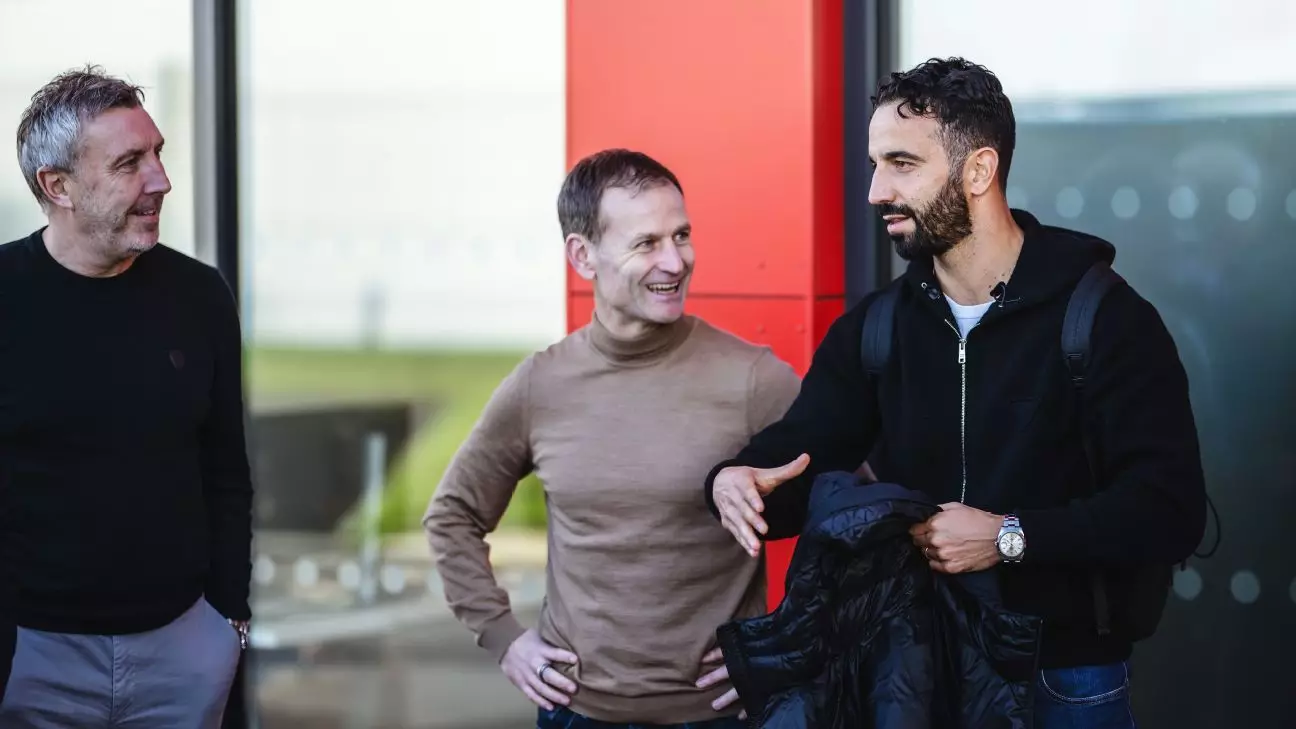Rúben Amorim has officially stepped into the high-pressure role as the latest head coach of Manchester United, a position that has seen five others try and fail to revive the footballing icons to their former heights. Following the managerial legacy of Sir Alex Ferguson, who exited the discursive theater of Old Trafford in 2013, United has been embroiled in a tumultuous cycle of fluctuating fortunes. From David Moyes to Ole Gunnar Solskjaer, each coach has faced their own battles, but none have yet managed to usher the team back onto the throne of the Premier League or the Champions League.
Now at just 39 years old and already equipped with two Portuguese league titles under his belt with Sporting CP, Amorim arrives with an impressive coaching pedigree. Acknowledging the daunting task ahead of him, Amorim remains unfazed. His enthusiasm for the challenge resonates as he prepares for his inaugural match against Ipswich Town on November 24. However, he faces a litany of pressing challenges that could complicate his efforts to reinvigorate a club in desperate need of transformation.
One of the significant aspects of Amorim’s coaching style is his favored 3-4-3 formation, a tactical approach he successfully employed at Sporting. However, at United, he inherits a squad designed predominantly for a 4-3-3 system, which raises immediate questions about player alignment and roles. This mismatch necessitates a delicate balancing act where Amorim must effectively ‘reshape’ his players to fit his system.
The existing depth in the center-back position might serve him well, given United’s six senior options. Conversely, the transformation of conventional wingers into wing-backs presents a dilemma. Exciting players like Diogo Dalot and Luke Shaw will need to transition into more defensive roles, and intriguing opportunities may arise for talents like Alejandro Garnacho and Amad Diallo, who could potentially adapt to Amorim’s demands for hybrid full-backs.
Yet, such reshaping might not come without its challenges. Both Garnacho and Diallo will need to commit to a more disciplined style of play that requires heightened defensive responsibility, a necessity given Amorim’s pressing philosophy that demands relentless work off the ball.
In aligning his tactical formation with player capabilities, Amorim must also address another pressing concern: the need for consistent goal contribution. The previous season under Erik ten Hag was marred by a troubling inability to score, with United managing a mere 115 Premier League goals—an output dwarfed by the likes of Manchester City and Newcastle United.
Amorim’s success at Sporting was closely tied to a potent attacking lineup, and the expectation is that he will seek similar efficacy at United. Key to this will be leveraging players like Rasmus Højlund, who arrives with promise but requires the crucial spark to evolve into a prolific scorer. His current goal tally of 18 in 55 appearances looks appealing on the surface but remains far from the standards expected at an elite level.
To navigate his goal-scoring puzzle, Amorim might draw inspiration from his time with Viktor Gyökeres at Sporting, as the standout forward thrived into one of Europe’s coveted attackers. If Amorim can replicate such metamorphosis with Højlund, it could serve as a cornerstone for the team’s renewal.
One of the profound issues plaguing United in recent seasons has been the lack of a clear identity or game plan. Amorim’s predecessor struggled to forge a coherent strategy that matched the club’s illustrious history, often leaving fans puzzled by inconsistent performances. As he embarks on his new journey, establishing a clear, identifiable style of play will be crucial in winning over the supporters, who will be eager to see glimpses of the attacking flair and defensive composure that defined the club’s earlier glory.
Moreover, rebuilding United’s home advantage will be paramount. Over the past season, the team suffered six league defeats at Old Trafford—unacceptable statistics for a club of its stature. Amorim is tasked not just with evolving the squad but with restoring an environment where winning at home becomes an expectation rather than a rarity. Early fixtures against teams such as Bodo/Glimt and Nottingham Forest offer promising opportunities for him to foster a winning momentum.
As Rúben Amorim steps into this intricate web that is Manchester United, he does so at a juncture of mixed expectations and audacious hope. Fans remain cautious amidst the shininess of new potential; they have witnessed too many false dawns. However, if Amorim can navigate these challenges effectively—adapting his tactical philosophy, engendering goal-scoring solutions, and forging a palpable team identity—he may very well be the man to ignite Manchester United’s resurgence and write a new chapter of triumph in its storied history.

